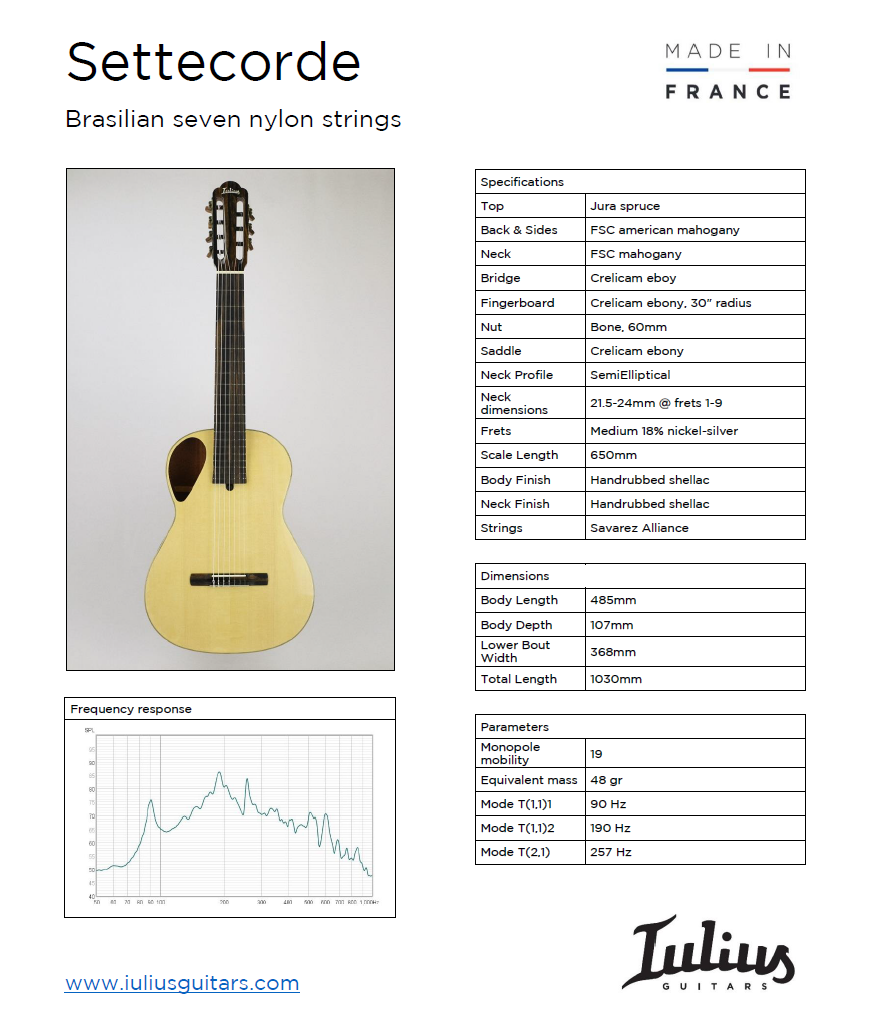Engineering emotions
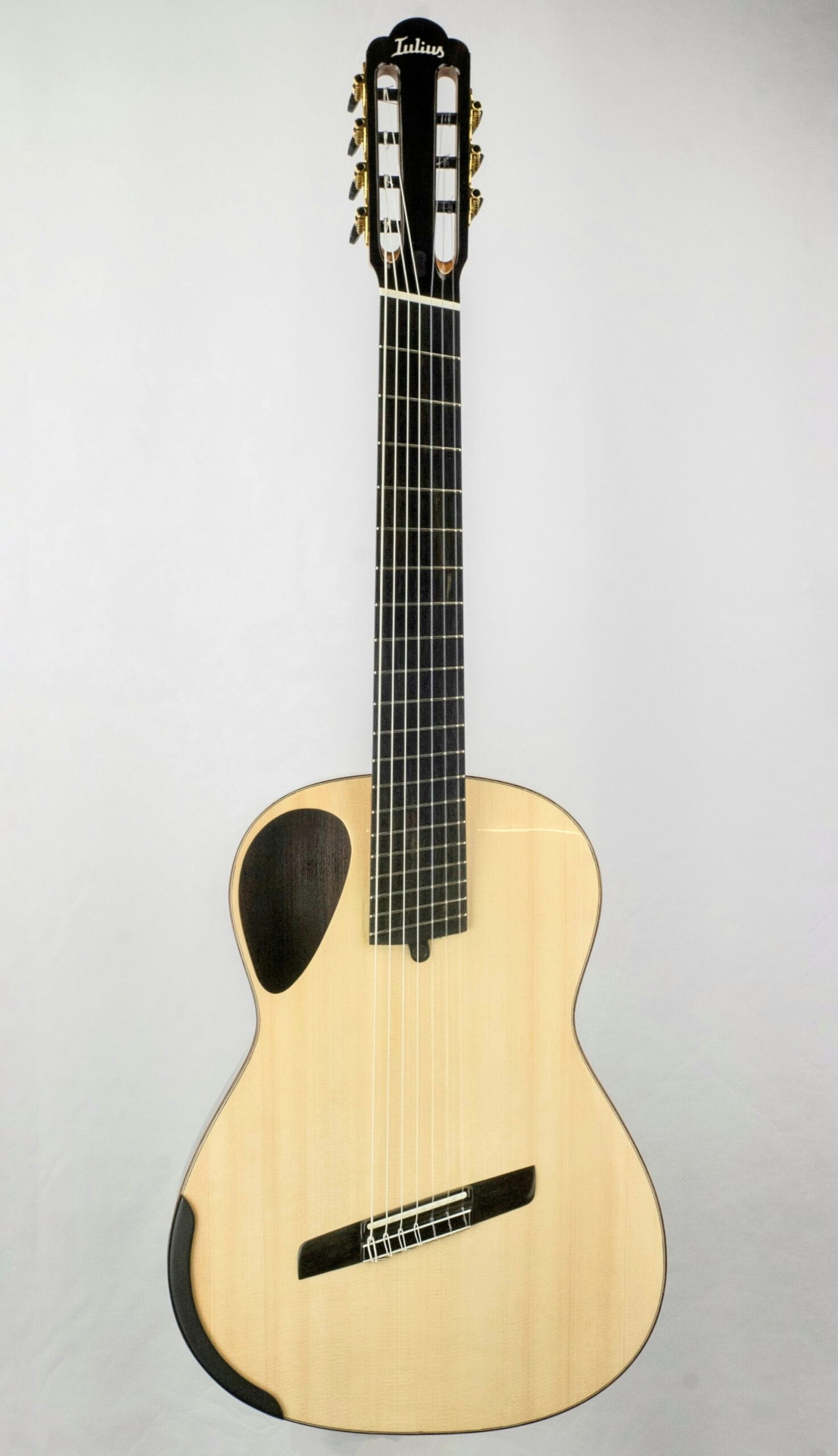
Settecorde
The Settecorde is a unique creation by Iulius Guitars, specifically designed for the vibrant and expressive world of Brazilian music.
Sharing the elegant design principles of the Orchestra model, the Settecorde boasts an Overhang Neck with a 30″ radiused fretboard and the body joining at the 13th fret, and a carefully sculpted 52mm nut.
The fan fret configuration offers optimized string tension, improved playing comfort, and a more balanced distribution of mechanical energy to the soundboard across the frequency range.
Additionally, the External Tuning Slot system, a unique innovation, keeps the main resonances always between the notes, minimizing wolf notes for a harmonious sound, great sustain, and coherence across the neck.
The bracing system adopts an original T-Fan scheme, that makes for a very low equivalent mass of the soundboard (around 40 grams), and an exceptional mobility value of 22 (s/Kg³), offering a responsive and expressive sound.
Whether you’re exploring the intricate melodies of choro, the syncopated rhythms of samba, or the rich harmonies of bossa nova, the Settecorde offers a unique and inspiring voice.
With its captivating blend of tradition and innovation, the Settecorde is a testament to Iulius Guitars’ commitment to pushing the boundaries of acoustic guitar design. It’s an instrument that invites exploration, empowers creativity, and celebrates the rich musical heritage of Brazil.
During a visit to my workshop, Roberto Stimoli played some beautiful music on his Settecorde Fan Fret.
Overhang neck
Handcrfted from a single and perfectly quarter sawn billet of wood, the neck is inserted directly within the bent upper bout of the soundboard, eliminating the traditional heel block.
This innovative design provides unparalleled playability, effortless access to the highest frets, and simplified maintenance.
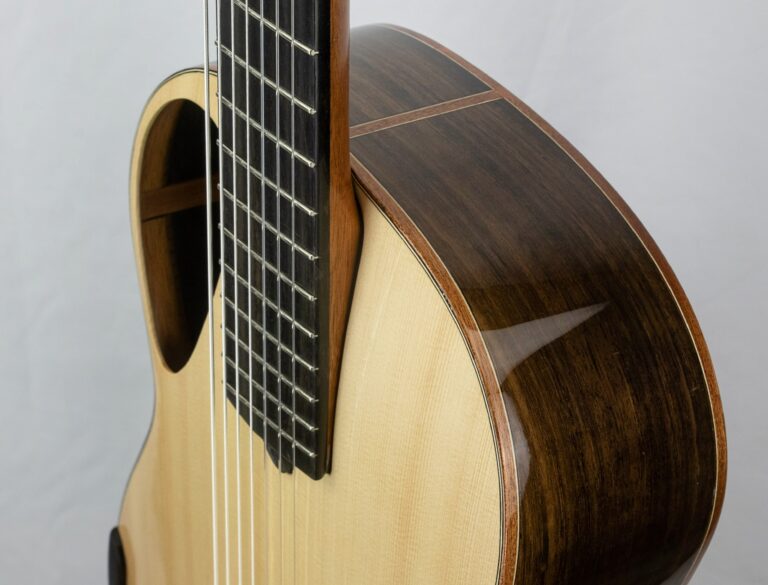
Drop Port
The asymmetric upper port is maximizing the radiating surface of the soundboard’s monopole, to increase dynamic, responsiveness and expressivity.
The Drop Port also enhance the power at the low end without the typical muddy signature of the standard sound holes, and simplifies positioning of microphones in studio environnment.
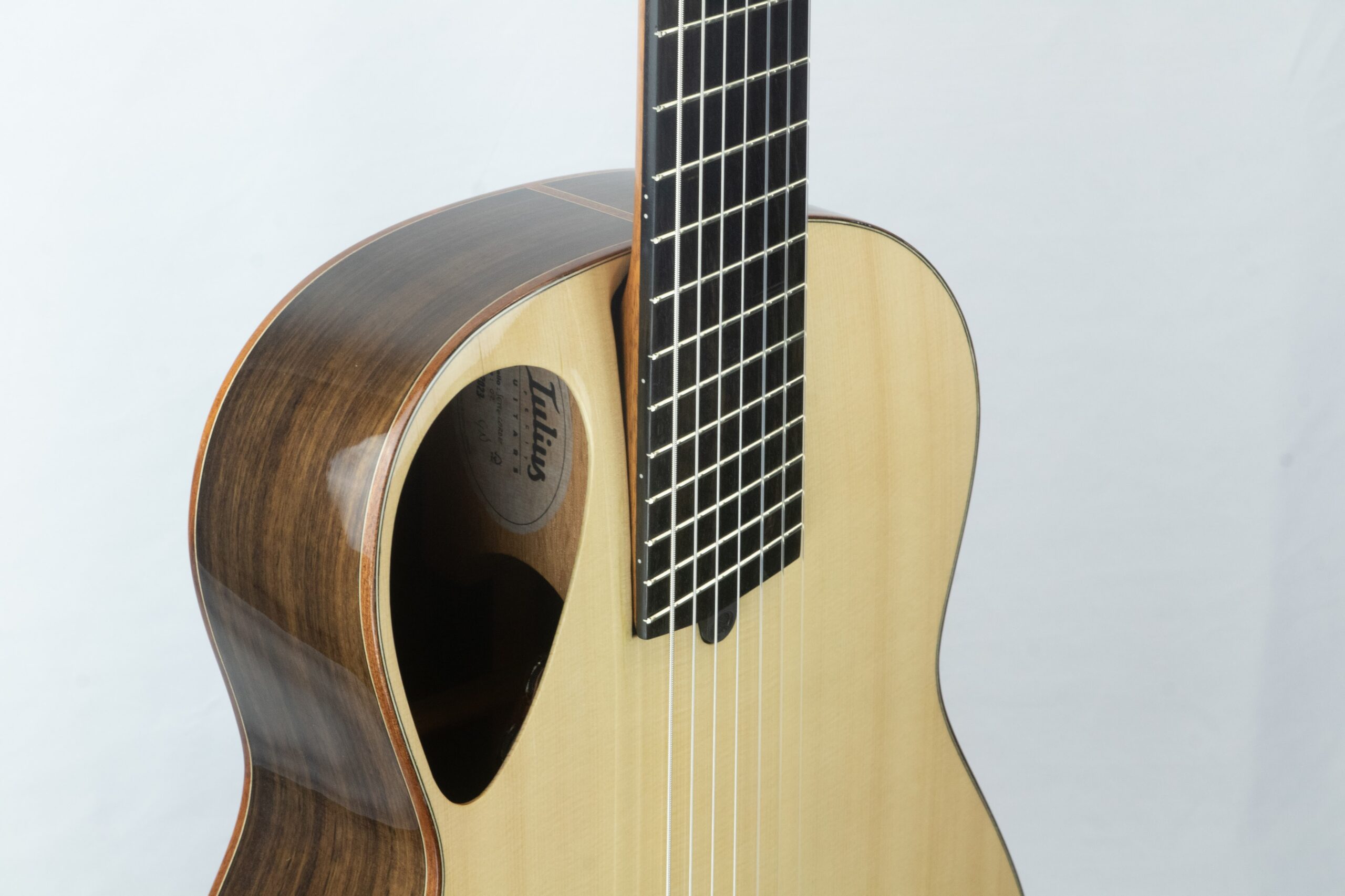
External Tuning Slot
An innovation unique on the market, the ETS system tunes the main resonances perfectly between the notes, minimizing wolf notes.
The result is a coherent, harmonic and juicy sound, plenty of sustain and balance across the whole fretboard.
Each Settecorde includes an individual specification sheet with a frequency response report. This data helps you track the instrument’s evolution and aging, and the ETS system allows for fine-tuning the main resonances to maintain peak acoustic performance.
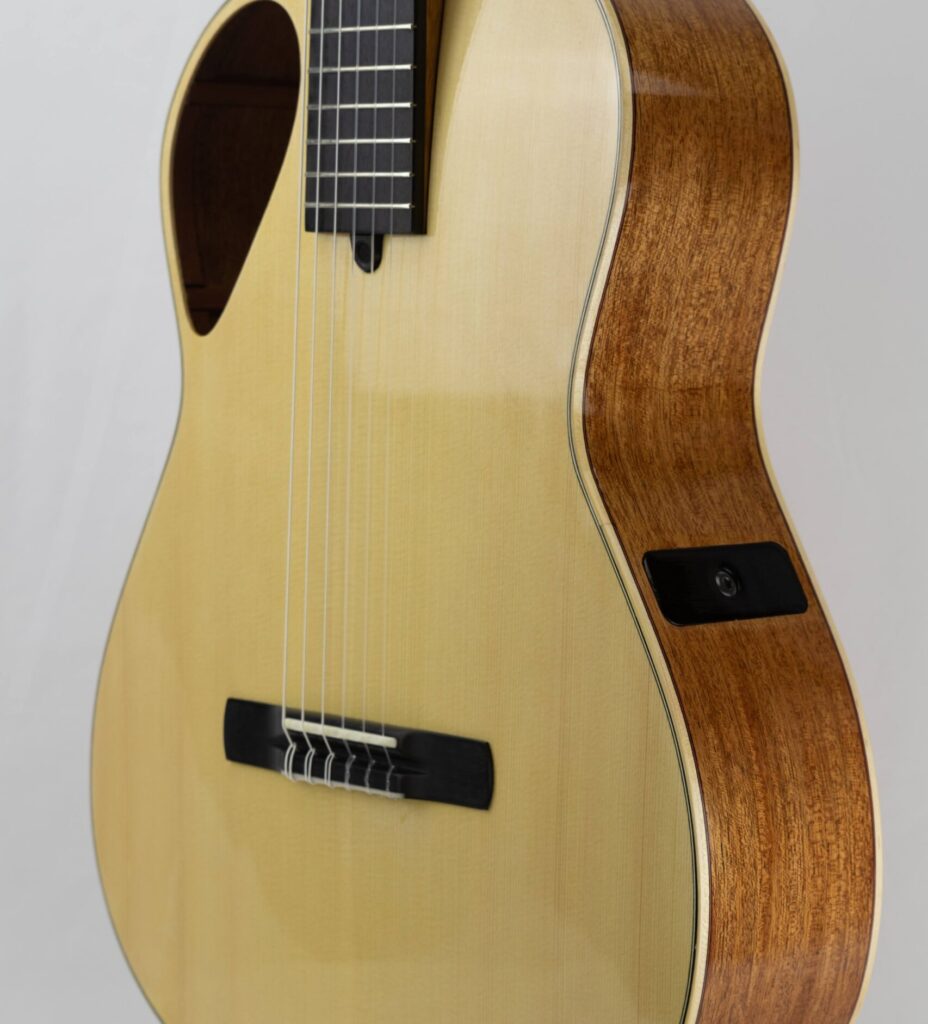
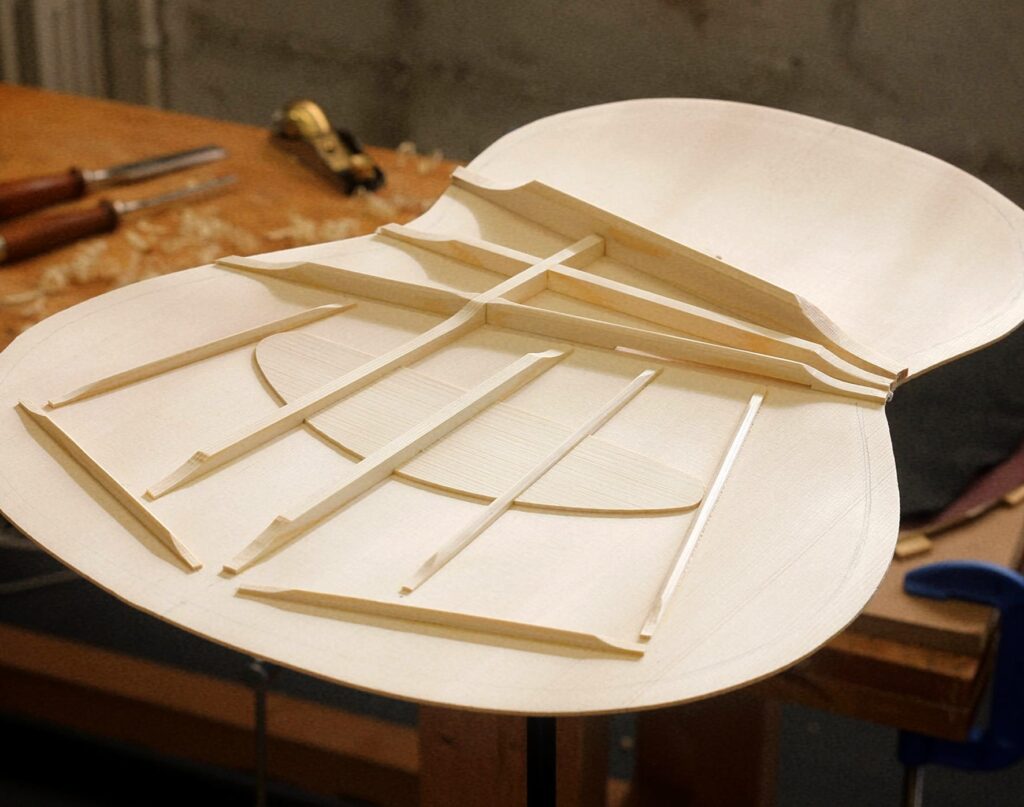
T-Fan Bracing
The original bracing scheme of the Orchestra model optimizes the strength-to-weight ratio, for a very low equivalent mass of the soundboard (around 40 grams), and an exceptional mobility value of 22 (s/Kg). The guitar is highly responsive, rich and expressive, while ensuring long-term reliability.
The fan-shaped bracing pattern also enhances the amplitude of dipoles and tripoles, resulting in an exceptionally rich spectrum of overtones.
Each instrument is meticulously tuned using a proprietary process, to avoid wolf tones on all main resonance modes. To offer a consistent sound all over the fretboard and an exceptional sustain at all frequencies.
Specifications
Top Jura spruce
Back and sides FSC mahogany
Neck FSC mahogany
Bridge Exotic ebony
Fingerboard Exotic ebony, 30″ radius
Nut bone, 60mm
Saddle bone, drop-in
Neck Profile C shape, 21.5-24mm @frets 1-9
Frets medium 18% nickel-silver
Scale Length 25 1/2″ – 27″
Bracing Pattern Hybrid T Fan bracing
Body Finish Glossy nitro
Neck Finish Glossy nitro
Strings Savarez Cantiga Premium
Dimensions
Body Length 485 mm
Body Depth 107 mm
Lower Bout Width 368 mm
Total Length 1010 mm
Acoustic parameters
Monopole mobility 22 s/Kg³
Equivalent mass 45 gr
Mode T(1,1)1 90 Hz
Mode T(1,1)2 190 Hz
Mode T(2,1) 257Hz
Frequency response
The frequency response of the Orchestra shows a perfect placement of the main resonances, and the evidence of dipolse and tripoles from 200 Hz to 1 kHz confirm a great content of overtones and harmonics.
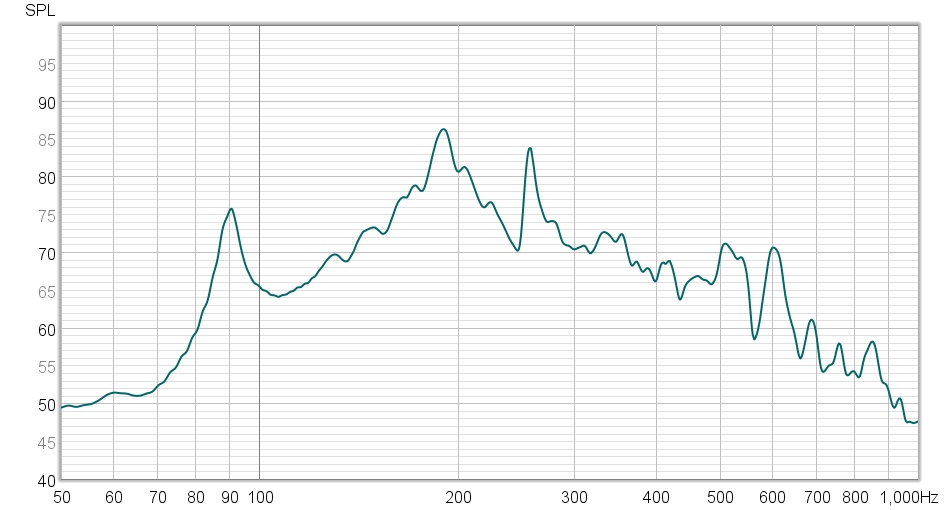
Download the specification sheet
